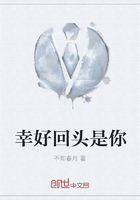The larger significance of the telephone is that it completes the work of eliminating the hermit and gypsy elements of civilization.
In an almost ideal way, it has made intercommunication possible without travel. It has enabled a man to settle permanently in one place, and yet keep in personal touch with his fellows.
Until the last few centuries, much of the world was probably what Morocco is to-day--a region without wheeled vehicles or even roads of any sort. There is a mythical story of a wonderful speaking-trumpet possessed by Alexander the Great, by which he could call a soldier who was ten miles distant; but there was probably no substitute for the human voice except flags and beacon-fires, or any faster method of travel than the gait of a horse or a camel across ungraded plains. The first sensation of rapid transit doubtless came with the sailing vessel; but it was the play-toy of the winds, and unreliable. When Columbus dared to set out on his famous voyage, he was five weeks in crossing from Spain to the West Indies, his best day's record two hundred miles. The swift steamship travel of to-day did not begin until 1838, when the Great Western raced over the Atlantic in fifteen days.
As for organized systems of intercommunication, they were unknown even under the rule of a Pericles or a Caesar. There was no post office in Great Britain until 1656--a generation after America had begun to be colonized. There was no English mail-coach until 1784; and when Benjamin Franklin was Postmaster General at Philadelphia, an answer by mail from Boston, when all went well, required not less than three weeks.
There was not even a hard-surface road in the thirteen United States until 1794; nor even a postage stamp until 1847, the year in which Alexander Graham Bell was born. In this same year Henry Clay delivered his memorable speech on the Mexican War, at Lexington, Kentucky, and it was telegraphed to The New York Herald at a cost of five hundred dollars, thus breaking all previous records for news-gathering enterprise.
Eleven years later the first cable established an instantaneous sign-language between Americans and Europeans; and in 1876 there came the perfect distance-talking of the telephone.
No invention has been more timely than the telephone. It arrived at the exact period when it was needed for the organization of great cities and the unification of nations. The new ideas and energies of science, commerce, and cooperation were beginning to win victories in all parts of the earth. The first railroad had just arrived in China; the first parliament in Japan; the first constitution in Spain. Stanley was moving like a tiny point of light through the heart of the Dark Continent. The Universal Postal Union had been organized in a little hall in Berne. The Red Cross movement was twelve years old. An International Congress of Hygiene was being held at Brussells, and an International Congress of Medicine at Philadelphia. De Lesseps had finished the Suez Canal and was examining Panama. Italy and Germany had recently been built into nations; France had finally swept aside the Empire and the Commune and established the Republic. And what with the new agencies of railroads, steamships, cheap newspapers, cables, and telegraphs, the civilized races of mankind had begun to be knit together into a practical consolidation.
To the United States, especially, the telephone came as a friend in need. After a hundred years of growth, the Republic was still a loose confederation of separate States, rather than one great united nation. It had recently fallen apart for four years, with a wide gulf of blood between;and with two flags, two Presidents, and two armies. In 1876 it was hesitating halfway between doubt and confidence, between the old political issues of North and South, and the new industrial issues of foreign trade and the development of material resources. The West was being thrown open. The Indians and buffaloes were being driven back. There was a line of railway from ocean to ocean. The population was gaining at the rate of a million a year. Col-orado had just been baptized as a new State.
And it was still an unsolved problem whether or not the United States could be kept united, whether or not it could be built into an organic nation without losing the spirit of self-help and democracy.
It is not easy for us to realize to-day how young and primitive was the United States of 1876. Yet the fact is that we have twice the population that we had when the telephone was invented. We have twice the wheat crop and twice as much money in circulation. We have three times the railways, banks, libraries, newspapers, exports, farm values, and national wealth. We have ten million farmers who make four times as much money as seven million farmers made in 1876. We spend four times as much on our public schools, and we put four times as much in the savings bank. We have five times as many students in the colleges.
And we have so revolutionized our methods of production that we now produce seven times as much coal, fourteen times as much oil and pig-iron, twenty-two times as much copper, and forty-three times as much steel.
There were no skyscrapers in 1876, no trolleys, no electric lights, no gasoline engines, no self-binders, no bicycles, no automobiles.
There was no Oklahoma, and the combined population of Montana, Wyoming, Idaho, and Arizona was about equal to that of Des Moines.
It was in this year that General Custer was killed by the Sioux; that the flimsy iron railway bridge fell at Ashtabula; that the "Molly Maguires"terrorized Pennsylvania; that the first wire of the Brooklyn Bridge was strung; and that Boss Tweed and Hell Gate were both put out of the way in New York.
The Great Elm, under which the Revolutionary patriots had met, was still standing on Boston Common. Daniel Drew, the New York financier, who was born before the American Constitution was adopted, was still alive; so were Commodore Vanderbilt, Joseph Henry, A.















